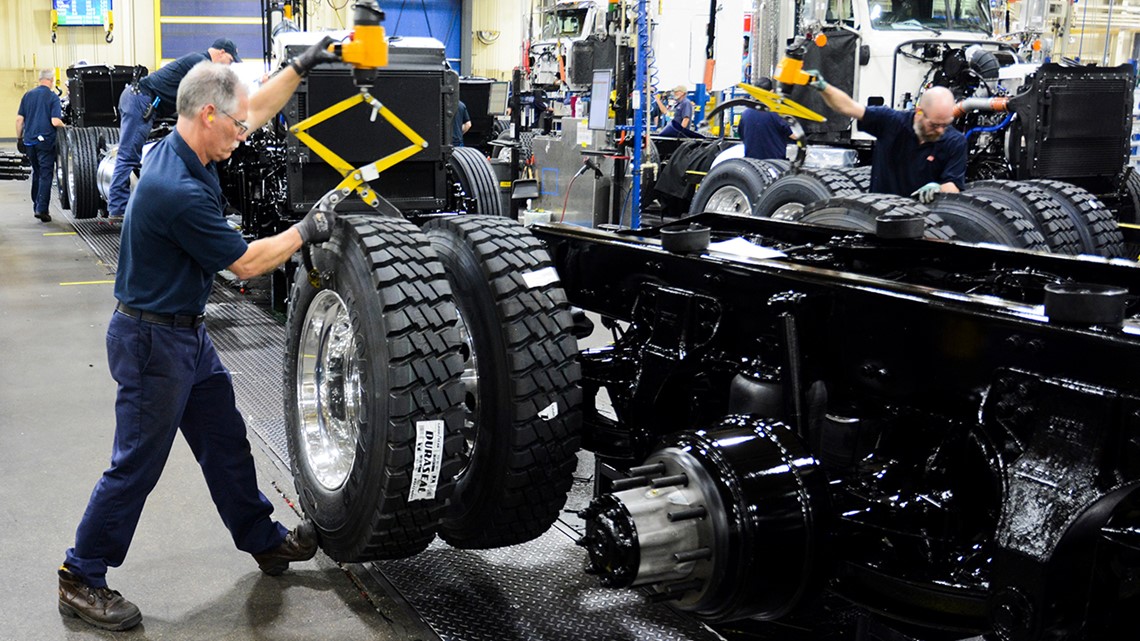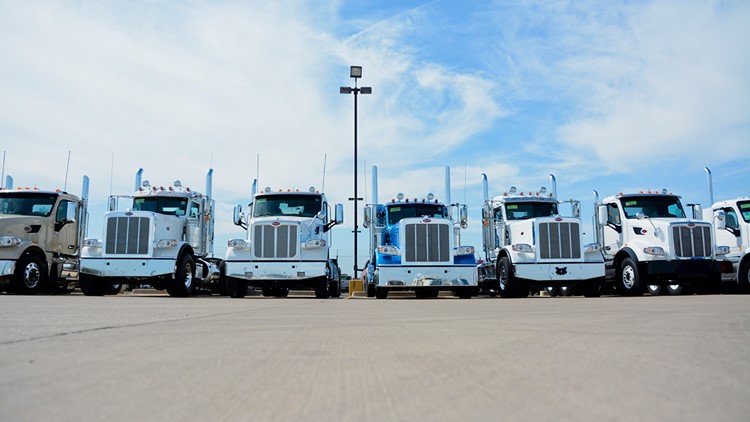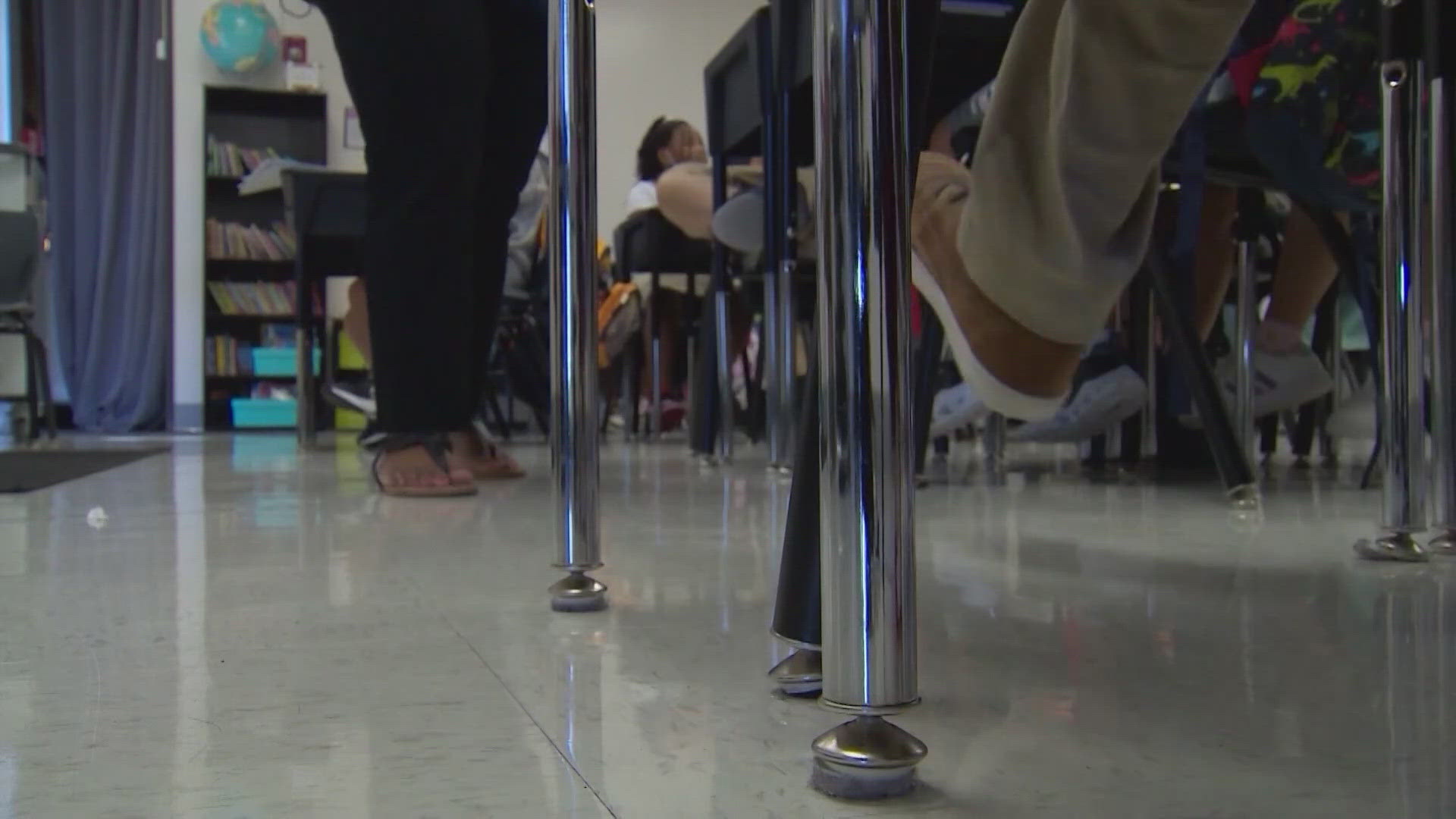When the Peterbilt truck plant opened in 1980, it was originally built to produce 12 trucks a day.
But with the national economy booming and companies shipping now more than ever, life is good for truck manufacturers in 2018. Peterbilt's factory in Denton is currently pumping out more than 150 trucks a day.
"This year will be the most trucks this plant will ever produce," said Chris Davis, plant manager of the Denton facility. "We’re on a record pace this year for trucks produced out of this factory."
Denton-based Peterbilt Motors Company is one of the largest manufacturers in the region with a total employee count of around 2,700 in Dallas-Fort Worth. The company has been a division of PACCAR Inc., based just outside of Seattle in Bellevue, Washington, since the 1950s.

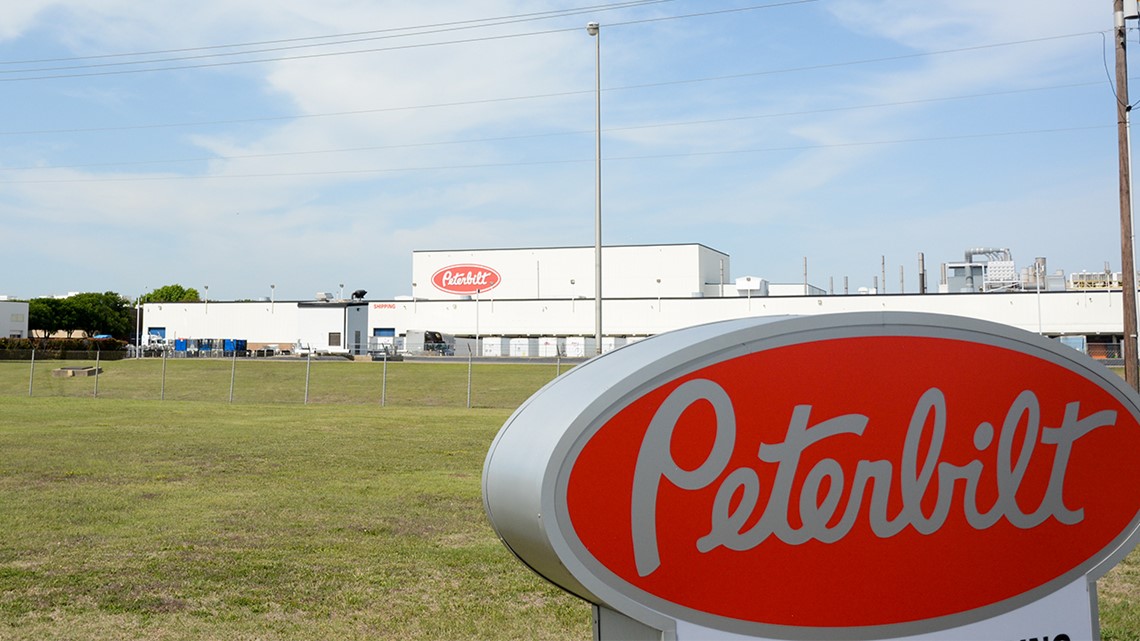
From the time the chassis starts to be built until the final product rolls out the door is just eight hours. That's especially impressive considering how customized a product Peterbilt makes for its customers. For example, the company made trucks in 927 different colors last year. They even have 27 different hues of white.
Of course, such a customized product doesn't come cheap. It varies depending on the model and the different features a customer wants, but the price of a truck can reach into six figures.
Trucking has arguably never been hotter. As Amazon.com has popularized expedited shipping, that's meant more business for logistics companies that need to transport goods around the country faster than ever.
As a result, there's currently a truck driver shortage companies are combatting. An economist for the American Trucking Association estimated that at the end of 2017, the trucking industry had a shortage of around 50,000 drivers.

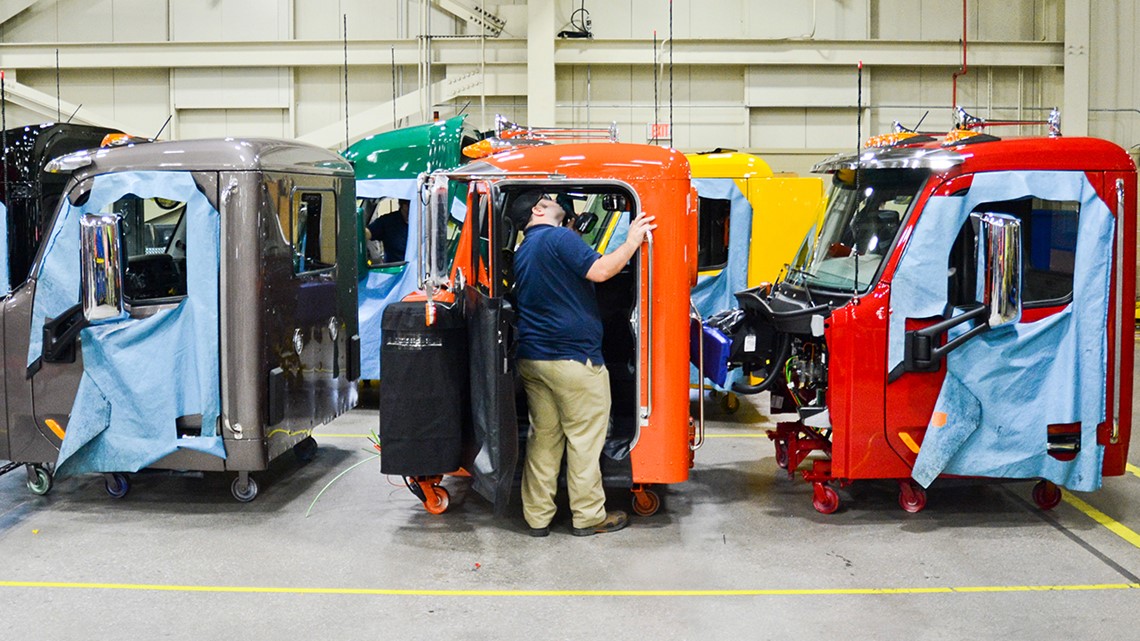
To help attract more drivers, manufacturers like Peterbilt are trying to help lower the barrier of entry of becoming a driver. About half the trucks they make now are automatic transmissions. That shift has occurred in the last three years or so, Davis said.
In a rare media tour, Peterbilt opened its doors to show how the company produces a truck. To go inside the facility and see how they do it, click here.
After the tour, Davis sat down with the Dallas Business Journal to give his thoughts on how the plant has changed, the company's hiring process and more.
How has the factory changed in the last five years?
The last five years we’ve added a lot more technology to the truck. So, we’ve had to kind of raise our training and understanding of vehicle systems. … There’s so much more technology getting on the truck than there was five years ago. As far as technology in the factory, DC tools which are those direct control tools which are all torque recording, they’re all driven off a computer server and we continue to add that technology basically just to improve the quality of the product. We know that when it left here, everything was right.
What are customers demanding now that they weren’t previously from their trucks?
Automatic transmissions are much more popular now than they were. And then new collision avoidance systems whether that be lane detection or blind spot detection. A lot of that stuff is more prevalent on the truck now. Safety features in general I’d say. Disc brakes are much more popular than it was five years ago.
Have there been any challenges ramping up production?
We’ve had to hire up a lot of employees. We have a pretty extensive process. We start with an online test, they do some computer-based testing. We bring them into a mechanical assessment. A hands-on mechanical assessment. Then they go through an on-site interview. So, for us, it’s an intensive process. But, for example, when we say we’re going to take applications, we got 1,000 applications in less than 24 hours online. So, we don’t have a problem getting people to apply. It’s sorting through and getting the right people that get our culture and get our standards.
I know the labor pool is pretty tight for manufacturing, but it sounds like you don’t have problems getting people in the door.
We don’t. I think that’s because of our benefit package.
You said your supplier base is concentrated in the Midwest and the Carolinas. What is the benefit to being here in Denton?
I think Texas is a pro-business state. We’ve had a very good relationship with the local community for a very long time. We’ve been here since 1980. Just from my perspective, people in Texas will get it done. Texans will get it done. I’ve worked all over the country. These people here are special.

